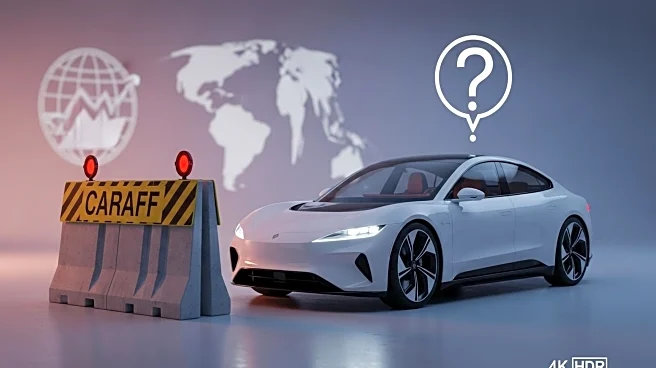What's Happening?
Tesla and BYD, two major electric vehicle manufacturers, are expected to be significantly affected by Mexico's proposal to increase tariffs on imports from China and other Asian countries to 50%. This proposal, which is yet to be approved by Mexico's Congress, marks a substantial rise from the current tariff rates of 15% to 20%. The proposed tariffs could impact Tesla and BYD more than other automakers like General Motors, Ford, and Stellantis, which have production plants in Mexico and are protected under a 2003 decree allowing tariff-free imports from countries without a free trade agreement with Mexico. Both Tesla and BYD have previously abandoned plans to establish production facilities in Mexico, which could exacerbate the impact of the proposed tariffs on their sales.
Why It's Important?
The proposed tariff increase could have significant implications for Tesla and BYD's operations and sales in Mexico. For BYD, which has seen rapid sales growth in Mexico, the tariffs could dampen demand for its electric vehicles, affecting its profitability and competitive pricing strategy. Tesla, which imports its Model 3 and Model Y vehicles from its Shanghai factory, may face challenges in maintaining its sales momentum in Mexico. The tariffs could also lead to broader economic and trade tensions between Mexico and China, potentially affecting other industries and trade relations. The situation underscores the complexities of international trade policies and their impact on global business operations.
What's Next?
If Mexico's Congress approves the tariff increase, Tesla and BYD may need to explore alternative strategies to mitigate the impact, such as shifting production to other locations or adjusting pricing strategies. Additionally, China may retaliate with its own trade measures, which could further complicate the situation. Stakeholders, including industry leaders and policymakers, will likely monitor developments closely to assess the potential economic and trade implications.









